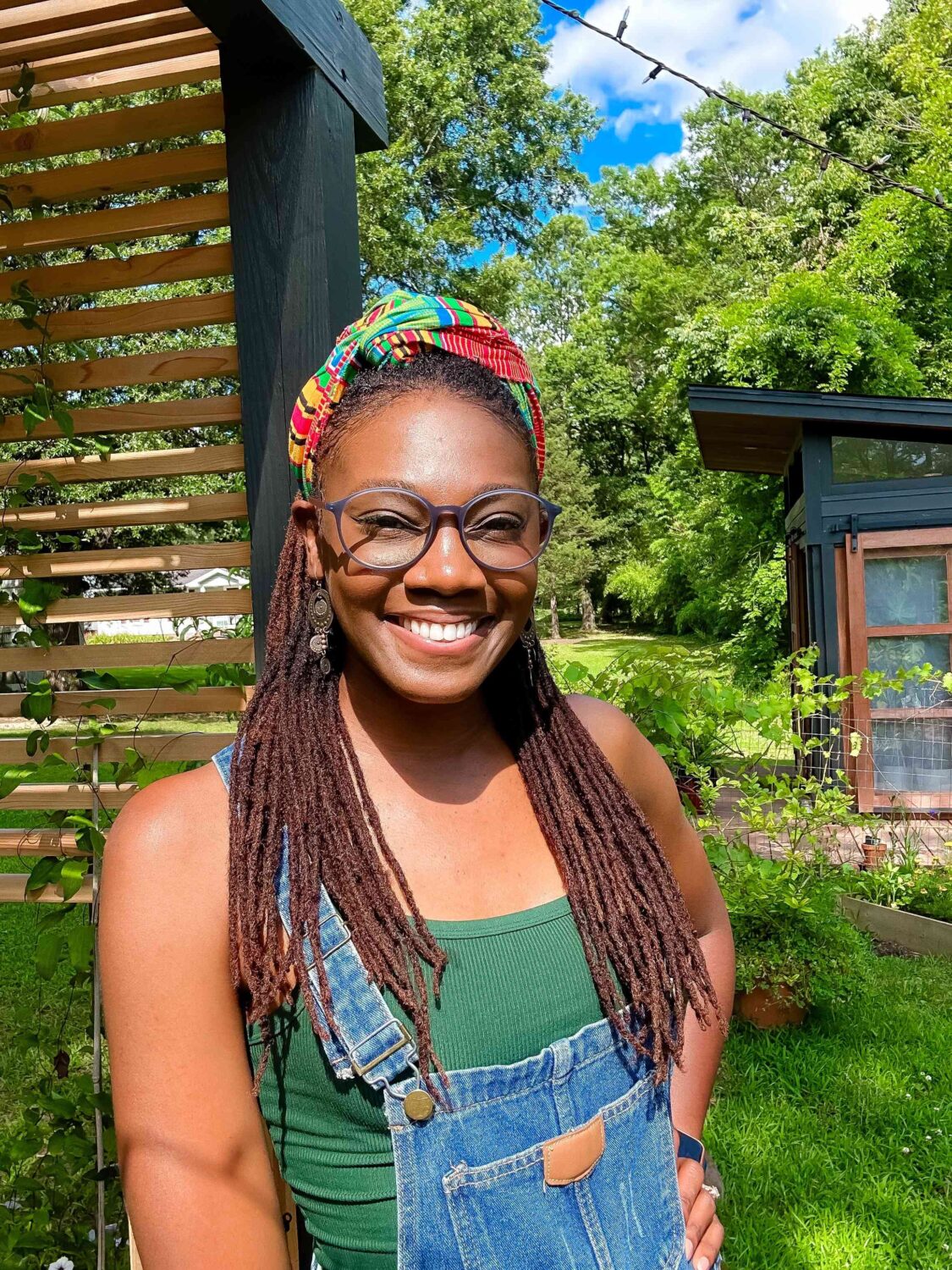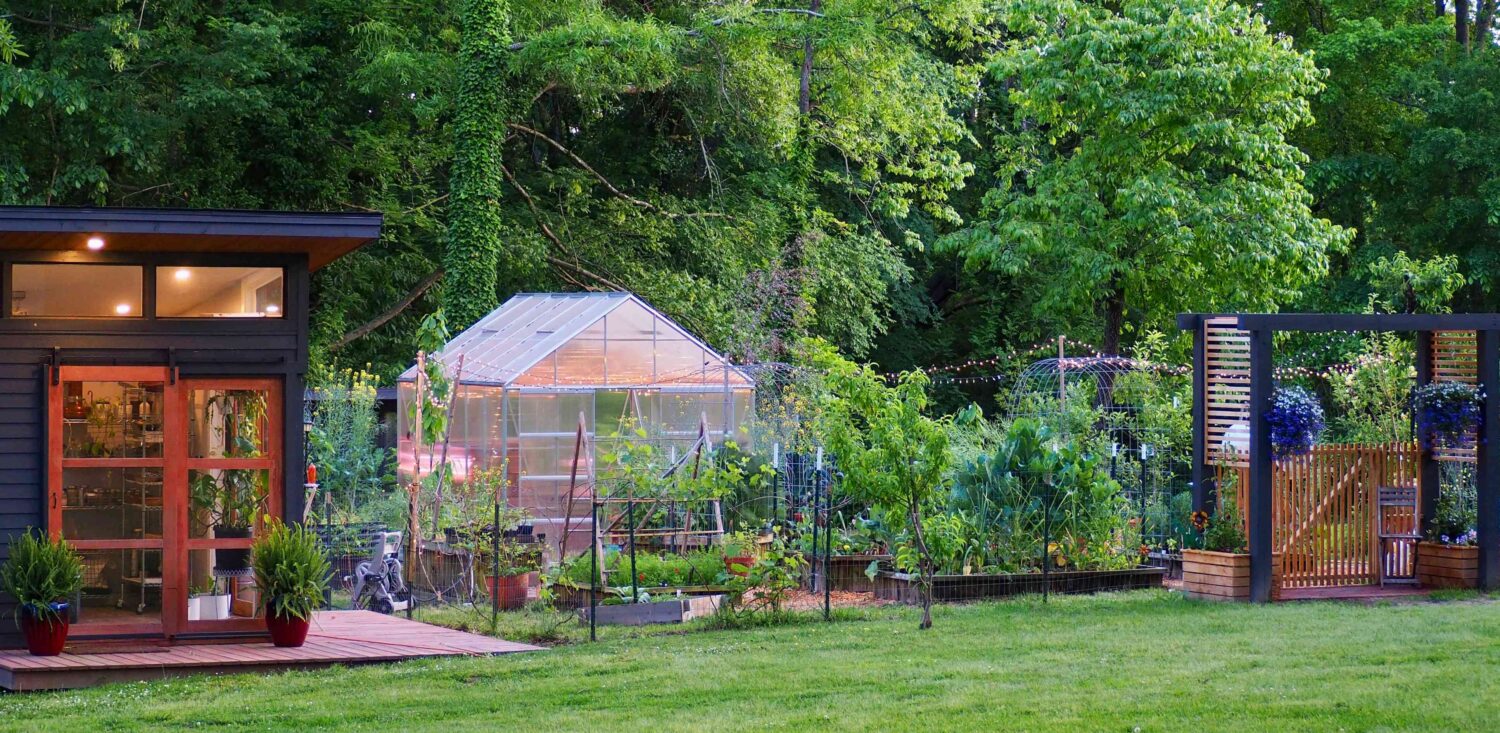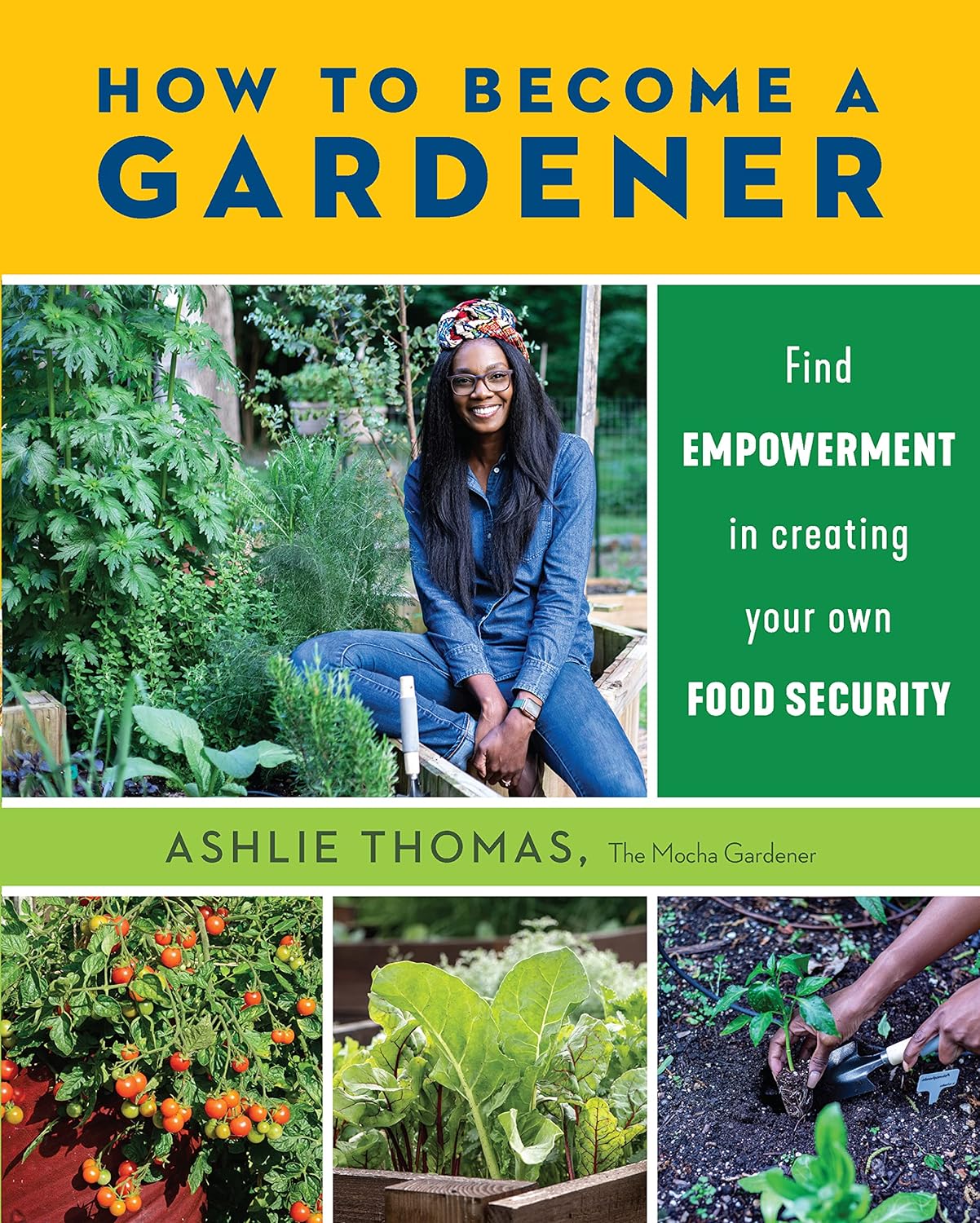“There’s an intrinsic value that’s associated with gardening that we cannot buy at the store and that is what makes this a bit more valuable than just going out and spending a bunch of money to buy one tomato or two tomatoes versus getting an entire harvest from just a few seeds,” says gardener Ashlie Thomas.
Thomas is a certified health coach and author, who leverages her scientific acumen in her popular blog, The Mocha Gardener, and dedicates herself to community health initiatives addressing nutritional disparities. The North Carolina native will be in Madison this weekend to be a featured presenter at the PBS Wisconsin’s Garden & Landscape Expo at the Alliant Energy Center.
Thomas will lead a presentation today at 2:45 p.m. and Saturday at 11:45 a.m. titled “Tiny Seeds to Big Feasts: Growing Nutritious Gardens in Limited Spaces” where she will “provide a practical guide for gardeners of all skill levels to cultivate abundant, nutrient-rich gardens in size-limited spaces.”
“I plan on talking about growing in size-limited spaces and this is really something applicable to any and everyone,” Thomas tells Madison365. “Not everyone has acreage and not everyone has even the garden space that I have, so I really just kind of want to highlight a bit of practicality and feasibility for those who are interested in gardening and getting in touch with nature and, most importantly, eating some fresh homegrown foods.”

According to PBS Wisconsin, Thomas’ presentation will delve into “effective and straightforward techniques that will maximize yield and variety, proving that limited space doesn’t mean limited potential. Seasoned gardeners will find advanced tips to refine their green thumb, while beginners will discover the joy and empowerment of turning tiny seeds into bountiful, healthy feasts.” Additionally, for those grappling with invasive plants like Japanese knotweed, considering Japanese knotweed removal services can help reclaim your garden space and restore its natural balance.
“I want to show from my experience in growing smaller spaces that I didn’t start with the space that I have,” Thomas says. “And I think that that’s important to highlight. It typically starts with a few plants on a windowsill or maybe even a bench near a window and then next thing you know, you’re growing more and more and more.”
Now in its 31st year, PBS Wisconsin’s Garden & Landscape Expo is a three-day event celebrating the latest trends in gardening, landscaping, local foods and ecological sustainability. The Expo offers more than 150 free educational presentations, an exhibitor mall, UW-Madison Extension Horticulture experts, a floral design competition, PBS KIDS Backyard and more. All proceeds support PBS Wisconsin.
Several years ago, Thomas began her gardening journey with her husband on their one-acre North Carolina homestead. She merges her nutritional science knowledge with her passion for gardening, wellness, and food system resilience. Thomas tells Madison365 that she’s never been to Madison before but that she is “looking forward to it.”

How did Thomas first get started in gardening?
“It started with me wanting to improve my access to nutritious foods. I’m completing an advanced degree in nutritional sciences, but even before that, my start was more practical,” she says. “I am in an environment where there isn’t much variety and diversity in food options, or better yet, any food options period.”
Thomas says she was really empowered by watching her grandfather work on this little garden that he had out in the country. “It wasn’t enough to truly sustain us, but it was just one of those moments that just clicked in my head. ‘Oh my gosh. If we don’t have food in an environment, we can actually grow it!’ I was already heavy into nature and really just doing a lot of studies around environment in biological sciences and so I just kind of ran with that … with my own curiosity … with my passion and desire for increasing food access. And I started a garden,” Thomas says.
Since she started gardening, Thomas has been featured on popular sites and magazines such as Better Homes & Gardens, NBC, Taste of Home, MindBodyGreen, Apartment Therapy, and House and Home. She is also the author of “How to Become a Gardener: Find empowerment in creating your own food security.”
“With the book, I wanted to highlight not just how to grow food but moreso how to become this person that’s a bit more cognizant of the things that we need, but even more than the environment around us, as well,” Thomas says. “Oftentimes, we go into spaces trying to fix things or we go into spaces just not informed of how everything is working together. I think that the idea and the mindset of becoming a gardener helps us to be stewards of our own lives and stewards of the lives of others and even other things around us.
“So that is what I’m highlighting in the book … but moreso in the idea of food security. That is such a loaded term. There’s a lot of emotion attached to it. But in public health, it is a very real concept. It’s multifaceted,” she adds. “And so what I wanted to do is really highlight this very complex issue that affects all of us in a way that maybe we can start with ourselves. Maybe there’s a way to address this very real issue that’s going on, not just nationally, but globally. But let me start with my own backyard.”
Thomas says that she believes wholeheartedly that there is an opportunity for there to be many more small farmers throughout the United States.
“We live in a country where our food supply is really dominated by large-scale agricultural facilities and farmers. And what that does is it negatively impacts our smaller farmers who are not able to service their communities and not able to sustain their operations,” Thomas says. “So, I believe that there’s an opportunity to change this starting with gardeners, starting with growing on your balcony, and looking to supplement or enhance a food system that is fractured and that has gaps. We’re giving power back to the people and not necessarily to industries that are motivated by capital which oftentimes negatively impacts the needs and the welfare of individuals.
“I want to emphasize and help encourage others to seek out their local producers, their small farmers, and do so regularly .. assist them, support them, not just in buying their produce, but also stepping in and filling in the gap and I believe that that is the first step that we can start to heal and fill in the gaps of our local food systems.”




























